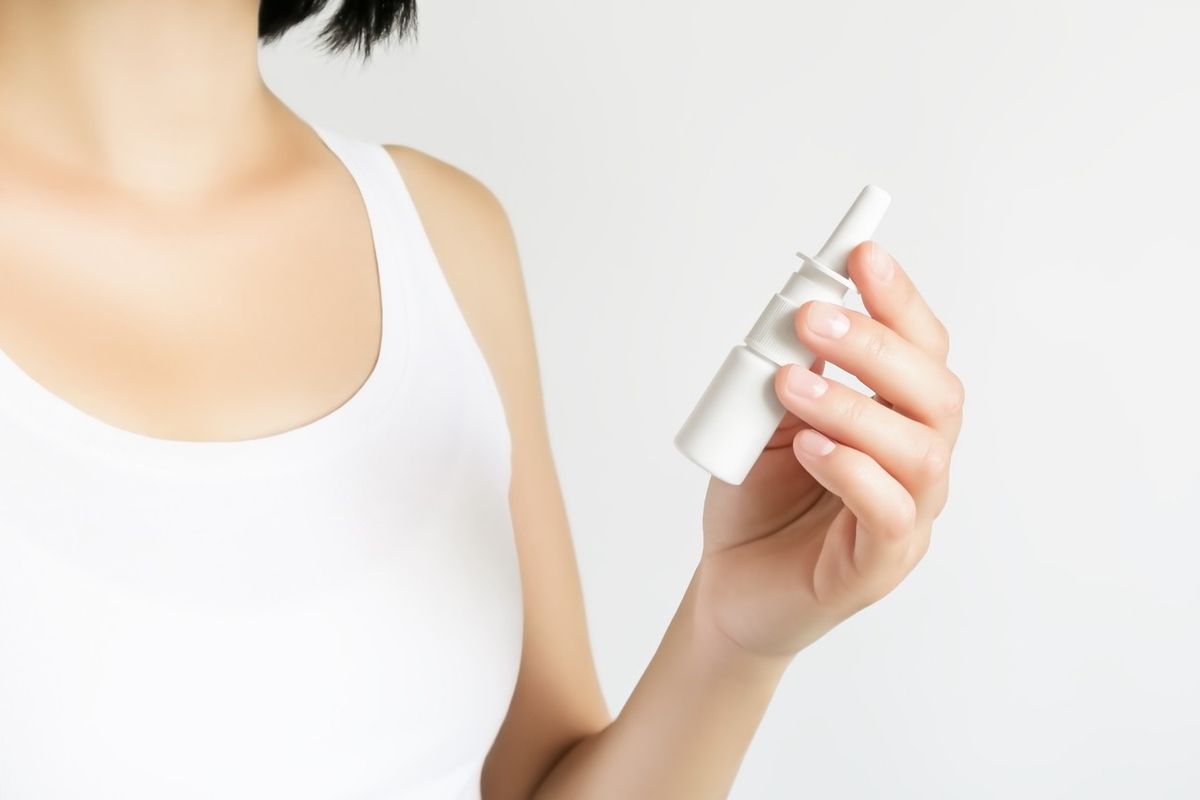The Chartered Trading Standards Institute (CTSI) has issued a stark warning to the public about dangerous and unregulated nasal tanning sprays that are being marketed to consumers on social media platforms.
These products can cause nausea, vomiting, high blood pressure, and even changes in mole shape and size. Long-term health impacts are not yet known, but studies have shown a potential link to melanoma, a type of skin cancer, CTSI noted.
CTSI added that it is also aware of a new emerging threat/trend of flavoured nasal tanning sprays, with sellers on Facebook and TikTok posting pictures of nasal tanning sprays that are available in flavours, such as peach, bubblegum, redbull, grape, strawberry and lime.
These “unscrupulous” sellers are also marketing tanning drops and gummies designed to be ingested, the CTSI said, expressing concern over the marketing of these products to children.
A recent survey of Trading Standards officers found that unsafe cosmetic products are the biggest emerging threat to UK consumers. CTSI has today launched their latest ‘#CostofBeauty’ campaign which raises awareness about the safety issues associated with three key cosmetic areas, including Nasal Tanning Sprays, Nail Glue and Professional use Lash Lift and Tint Kits
According to the British Beauty Council the self-tan market is set to hit £746.3 million by 2027 and worryingly nasal tanning sprays are growing in popularity due to promotion by influencers and the products being widely available online. However, some of these products contain dangerous ingredients including Melanotan 2, a synthetic hormone that can accelerate tanning, but is not approved by health authorities. Without regulation and mandatory safety assessment these products may contain unknown contaminants and pose significant risks and danger to the public.
CTSI is now urging the public to:
- Avoid any type of tanning products that are ingested or inhaled
- Use safer tanning options, such as creams and sprays and buy these from reputable retailers
- Report any unsafe products to Trading Standards via consumer helplines
Inhaling sprays can irritate the respiratory tract, with potential symptoms like coughing, sneezing and nasal congestion. Repeated exposure could lead to chronic respiratory issues. There is a worry that these products are becoming increasingly popular and the illegal market will increase to meet that demand.
CTSI also highlighted the case of Edith Eagle, who has publicly told her story about how she was left in hospital “unable to breathe” after suffering a severe reaction to an unlicensed nasal tanning spray she bought online. When explaining her symptoms Eagle said: “I can't even explain it, but I was suffocating inside. It was as if I was drowning within my own body.”
Nasal tanning sprays are designed to be sprayed into the nostrils and claim to work by administering a substance known as Melanotan 2, a chemical that darkens skin pigmentation. It is illegal to sell medicinal products containing Melanotan 2 in the UK, but as the tanners are sold cosmetically they fall outside that remit. However, they are not covered by UK cosmetics regulations, meaning they are not subjected to the same scrutiny as other over-the-counter beauty products.
“Edith’s story is a sobering one, and an example of what can happen when putting unregulated products into our bodies,” Richard Knight, CTSI Lead Officer for Cosmetics and Beauty, said.
“Unlike cosmetic products, nasal tanning sprays are unlikely to have had expert safety assessment, and use of relevant health warnings and instructions for safe use are rare. This means that no-one, including influencers, can truly know the risks of using these quasi-medical potions.”
Susanna Daniels, CEO of Melanoma Focus, said: “We're becoming increasingly concerned about the use of both nasal tanning sprays and tanning injections and their potential links with melanoma skin cancer. These unregulated and illegal products not only pose serious health risks but also encourage harmful behaviours, particularly among young consumers. We urge the public to consider the long-term impacts on their health and avoid using these substances altogether.”
Consumers are being advised to opt for safer self-tanning options, like lotions or sprays applied to the skin, which are regulated under the UK Cosmetics Regulation and come with clear user guidelines.
CTSI also urged consumers in England and Wales to report any suspicious cosmetic products or if they have experienced any adverse reactions after using a product to Trading Standards immediately by calling the free Citizens Advice Consumer Helpline on 0808 223 1133. In Scotland, contact Consumer Advice Scotland on 0808 164 6000, or if in Northern Ireland, call Consumerline on 0300 123 6262.


